-
 Bitcoin
Bitcoin $115200
-2.68% -
 Ethereum
Ethereum $3601
-5.16% -
 XRP
XRP $3.035
-2.96% -
 Tether USDt
Tether USDt $0.9997
-0.04% -
 BNB
BNB $764.5
-5.43% -
 Solana
Solana $168.1
-5.92% -
 USDC
USDC $0.9998
-0.02% -
 Dogecoin
Dogecoin $0.2090
-4.80% -
 TRON
TRON $0.3272
-0.49% -
 Cardano
Cardano $0.7306
-5.00% -
 Hyperliquid
Hyperliquid $39.16
-12.22% -
 Stellar
Stellar $0.3967
-4.96% -
 Sui
Sui $3.566
-5.95% -
 Chainlink
Chainlink $16.55
-6.57% -
 Bitcoin Cash
Bitcoin Cash $552.3
-3.90% -
 Hedera
Hedera $0.2516
-4.69% -
 Avalanche
Avalanche $21.99
-5.75% -
 Toncoin
Toncoin $3.621
-0.28% -
 Ethena USDe
Ethena USDe $1.000
-0.03% -
 UNUS SED LEO
UNUS SED LEO $8.951
0.02% -
 Litecoin
Litecoin $105.9
-3.59% -
 Shiba Inu
Shiba Inu $0.00001232
-5.00% -
 Polkadot
Polkadot $3.640
-5.55% -
 Uniswap
Uniswap $9.048
-7.03% -
 Monero
Monero $301.8
-1.51% -
 Dai
Dai $0.9999
-0.01% -
 Bitget Token
Bitget Token $4.334
-3.66% -
 Pepe
Pepe $0.00001064
-6.17% -
 Cronos
Cronos $0.1367
-5.78% -
 Aave
Aave $259.2
-4.59%
IEO participation manual: How to increase the chance of winning a new IPO?
IEOs are token sales hosted by crypto exchanges, adding trust and security; participants must research, prepare, and act quickly to secure tokens.
May 23, 2025 at 11:56 pm
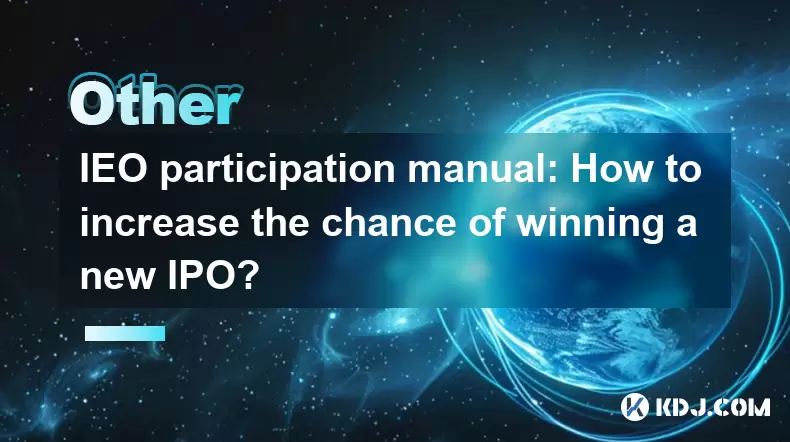
Introduction to IEOs
An Initial Exchange Offering (IEO) is a fundraising method where a cryptocurrency project launches its token sale directly on a cryptocurrency exchange platform. Unlike an Initial Coin Offering (ICO), where the project team manages the sale, an IEO is managed by the exchange, which adds a layer of trust and security for investors. Participating in an IEO can be an exciting opportunity to get involved with new projects at an early stage, but it also comes with its own set of challenges and strategies to increase your chances of successfully acquiring tokens.
Understanding the IEO Process
Before diving into strategies, it's essential to understand how an IEO works. When a project decides to launch an IEO, it partners with an exchange that will host the token sale. The exchange conducts due diligence on the project to ensure its legitimacy and compliance with regulatory standards. Once approved, the exchange announces the IEO, detailing the token sale's start and end dates, the total token supply, the price per token, and any other relevant information.
Participants must have an account on the hosting exchange and complete any necessary KYC (Know Your Customer) procedures. During the IEO, users can purchase tokens using the exchange's supported cryptocurrencies, usually Bitcoin or Ethereum. The exchange handles the distribution of tokens to participants after the sale concludes.
Preparing for an IEO
To increase your chances of successfully participating in an IEO, preparation is key. Here are some steps you can take:
Research the Project: Before participating in an IEO, thoroughly research the project. Look into the team's background, the project's whitepaper, and any existing reviews or audits. Understanding the project's goals and potential can help you make an informed decision.
Choose a Reputable Exchange: Not all exchanges are created equal. Select an exchange known for its security, user experience, and successful IEOs. Popular exchanges for IEOs include Binance, KuCoin, and Bitfinex.
Fund Your Account: Ensure you have enough funds in your exchange account before the IEO starts. Since IEOs can fill up quickly, having funds ready to go can give you an edge.
Understand the Token Allocation: Some IEOs allocate tokens on a first-come, first-served basis, while others use a lottery system. Knowing how the tokens will be distributed can help you plan your participation strategy.
Strategies to Increase Your Chances of Winning
Participating in an IEO can be competitive, especially for highly anticipated projects. Here are some strategies to increase your chances of securing tokens:
Participate Early: Many IEOs allocate tokens on a first-come, first-served basis. Logging into the exchange and being ready to purchase as soon as the IEO starts can significantly increase your chances. Set reminders and be prepared to act quickly.
Use Multiple Accounts: Some participants use multiple accounts to increase their chances of securing tokens. However, this practice may violate the exchange's terms of service, so it's crucial to review the rules before proceeding. If allowed, ensure each account is fully verified and funded.
Join the Exchange's Community: Engaging with the exchange's community on social media or forums can provide valuable insights and updates about upcoming IEOs. Being part of the community can also give you access to exclusive announcements and potentially increase your chances of participating in IEOs.
Monitor the Exchange's Website: Exchanges often provide detailed information about upcoming IEOs on their websites. Regularly checking the exchange's IEO section can help you stay informed about new opportunities and prepare accordingly.
Technical Tips for IEO Participation
When participating in an IEO, technical issues can hinder your chances of success. Here are some technical tips to consider:
Use a Reliable Internet Connection: A stable and fast internet connection is crucial during an IEO. Ensure you're using a reliable connection to avoid delays or disconnections that could prevent you from participating.
Clear Your Browser Cache: Before the IEO starts, clear your browser cache to ensure you're loading the most up-to-date version of the exchange's website. This can help prevent technical issues that might slow down your participation.
Disable Browser Extensions: Some browser extensions can interfere with the exchange's website functionality. Disable any unnecessary extensions before participating in an IEO to minimize potential issues.
Use Multiple Devices: If possible, use multiple devices to participate in the IEO. Having a backup device can help if one device encounters technical issues.
Common Pitfalls to Avoid
While participating in an IEO, it's essential to be aware of common pitfalls that could decrease your chances of success:
Overlooking KYC Requirements: Failing to complete the exchange's KYC process can prevent you from participating in an IEO. Ensure you complete all necessary verification steps well before the IEO starts.
Ignoring Transaction Fees: Some exchanges charge transaction fees for participating in IEOs. Make sure you have enough funds to cover these fees, as they can affect your ability to purchase tokens.
Falling for Scams: Be cautious of fraudulent IEOs and scams. Always verify the legitimacy of the project and the exchange hosting the IEO. Avoid clicking on suspicious links or providing personal information to unverified sources.
Not Reading the Fine Print: Each IEO has its own set of rules and conditions. Carefully read the terms and conditions to understand any restrictions or requirements that could impact your participation.
Frequently Asked Questions
Q: Can I participate in an IEO from any country?
A: It depends on the exchange and the project's regulations. Some IEOs are restricted to certain countries due to legal and compliance reasons. Always check the exchange's website for a list of eligible countries before participating.
Q: What happens if I don't get allocated any tokens during an IEO?
A: If you don't receive any tokens, the funds you used to participate will typically be returned to your exchange account. You can then use these funds for future IEOs or other investments.
Q: Are there any risks associated with participating in IEOs?
A: Yes, like any investment, IEOs come with risks. These include the potential for the project to fail, market volatility affecting token value, and the possibility of scams. Always conduct thorough research and invest only what you can afford to lose.
Q: How can I stay updated on upcoming IEOs?
A: To stay updated on upcoming IEOs, regularly check the exchange's website, subscribe to their newsletter, and follow their social media channels. Joining cryptocurrency communities and forums can also provide valuable insights and announcements about upcoming IEOs.
Disclaimer:info@kdj.com
The information provided is not trading advice. kdj.com does not assume any responsibility for any investments made based on the information provided in this article. Cryptocurrencies are highly volatile and it is highly recommended that you invest with caution after thorough research!
If you believe that the content used on this website infringes your copyright, please contact us immediately (info@kdj.com) and we will delete it promptly.
- Cardano Price, Pi Network, and Crypto Presales: What's the Buzz?
- 2025-08-02 08:50:12
- XRP Fund Success: Teucrium CEO Reveals Trillions on the Horizon
- 2025-08-02 09:10:12
- Challenge Coins: More Than Just Collectibles – A Military Tradition
- 2025-08-02 08:30:12
- Under the Radar: Hunting for 100x Crypto Gems in a Pi Network World
- 2025-08-02 08:30:12
- Bitcoin, Solana, and Altcoin Season: What's Hot and What's Not?
- 2025-08-02 07:10:12
- Toncoin, Rollblock, and the Token Offering Landscape: A New York Minute
- 2025-08-02 07:10:12
Related knowledge
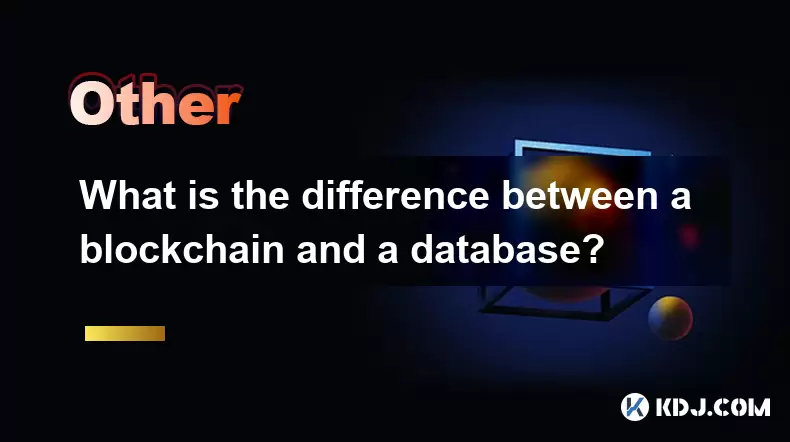
What is the difference between a blockchain and a database?
Aug 01,2025 at 09:36pm
Understanding the Core Structure of a BlockchainA blockchain is a decentralized digital ledger that records data in a series of immutable blocks linke...
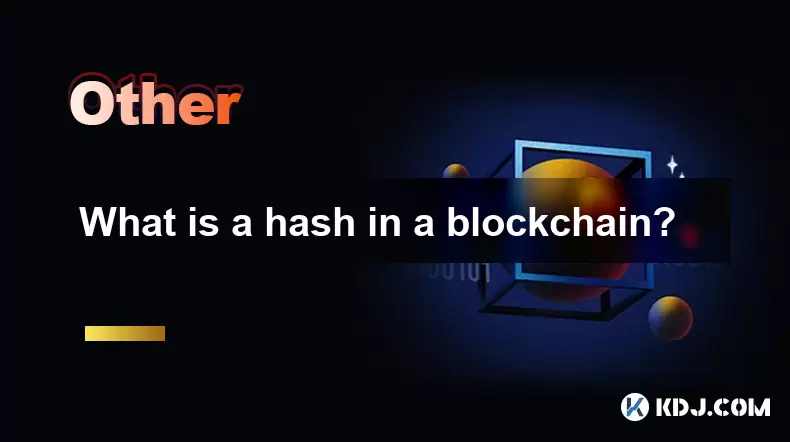
What is a hash in a blockchain?
Aug 02,2025 at 05:28am
Understanding the Concept of Hash in BlockchainA hash in the context of blockchain technology refers to a unique digital fingerprint generated by a cr...
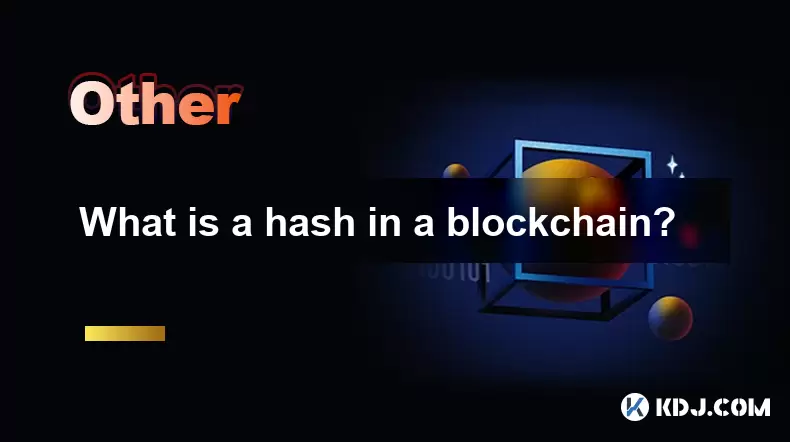
What is a hash in a blockchain?
Aug 02,2025 at 04:43am
Understanding the Concept of Hash in BlockchainA hash in the context of blockchain technology refers to a unique digital fingerprint generated by a cr...
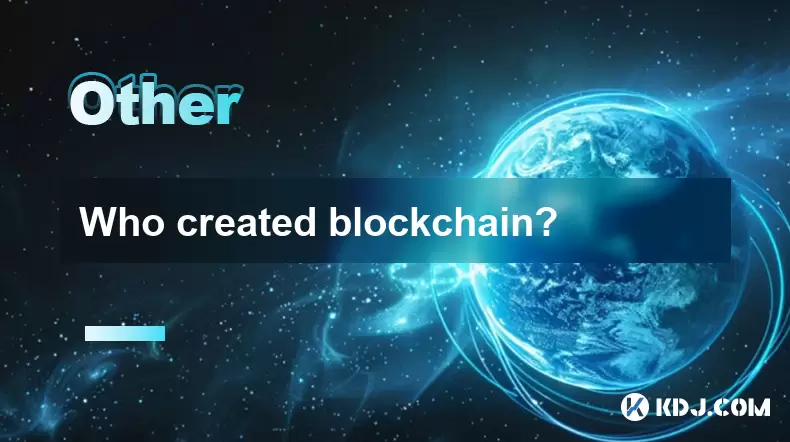
Who created blockchain?
Aug 02,2025 at 05:15am
What Is Blockchain and Why Does Its Origin Matter?Understanding who created blockchain begins with recognizing what blockchain actually is. Blockchain...
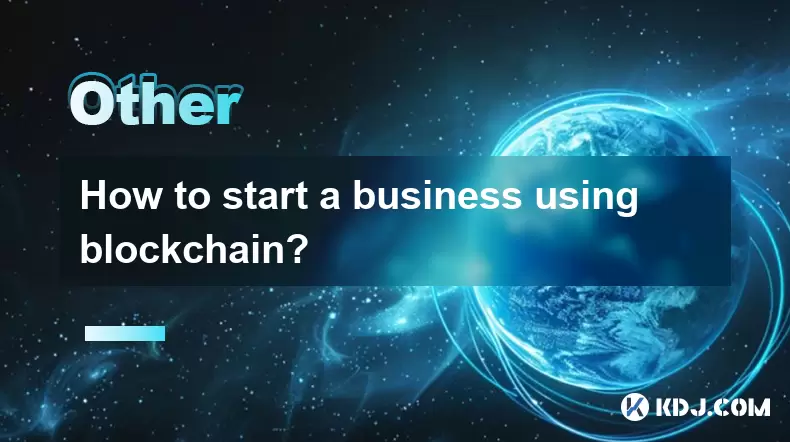
How to start a business using blockchain?
Jul 28,2025 at 12:36am
Understanding the Basics of Blockchain TechnologyBefore diving into the process of starting a business using blockchain, it's crucial to understand wh...
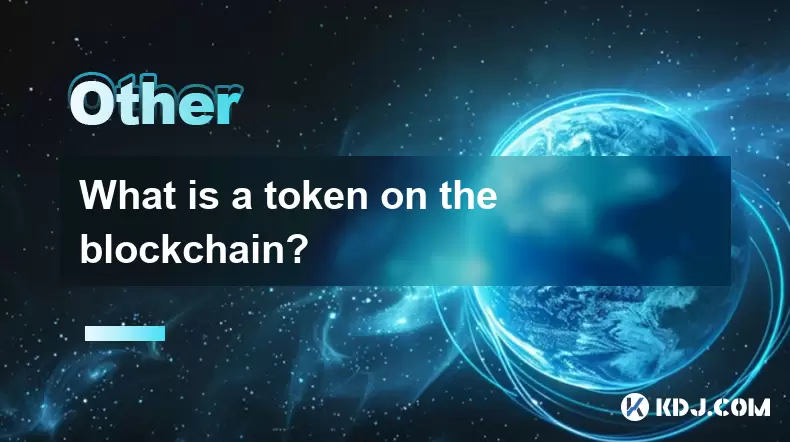
What is a token on the blockchain?
Jul 21,2025 at 07:00am
Understanding the Concept of a TokenIn the realm of blockchain technology, a token is a digital representation of an asset or utility that exists on a...

What is the difference between a blockchain and a database?
Aug 01,2025 at 09:36pm
Understanding the Core Structure of a BlockchainA blockchain is a decentralized digital ledger that records data in a series of immutable blocks linke...

What is a hash in a blockchain?
Aug 02,2025 at 05:28am
Understanding the Concept of Hash in BlockchainA hash in the context of blockchain technology refers to a unique digital fingerprint generated by a cr...

What is a hash in a blockchain?
Aug 02,2025 at 04:43am
Understanding the Concept of Hash in BlockchainA hash in the context of blockchain technology refers to a unique digital fingerprint generated by a cr...

Who created blockchain?
Aug 02,2025 at 05:15am
What Is Blockchain and Why Does Its Origin Matter?Understanding who created blockchain begins with recognizing what blockchain actually is. Blockchain...

How to start a business using blockchain?
Jul 28,2025 at 12:36am
Understanding the Basics of Blockchain TechnologyBefore diving into the process of starting a business using blockchain, it's crucial to understand wh...

What is a token on the blockchain?
Jul 21,2025 at 07:00am
Understanding the Concept of a TokenIn the realm of blockchain technology, a token is a digital representation of an asset or utility that exists on a...
See all articles

























































































